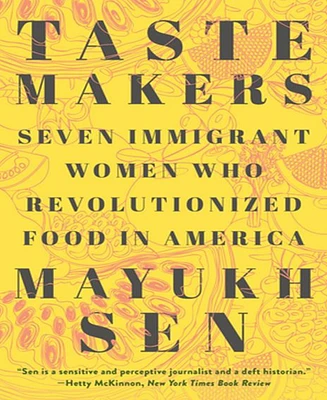Home
Professional Immigrant Women
Loading Inventory...
Barnes and Noble
Professional Immigrant Women
Current price: $14.99


Barnes and Noble
Professional Immigrant Women
Current price: $14.99
Loading Inventory...
Size: OS
*Product Information may vary - to confirm product availability, pricing, and additional information please contact Barnes and Noble
Our stories planted the seeds of an inquiry project. We wondered if other professional immigrant women shared similar experiences. We discovered that research on immigration focused on global issues and themes. The limited scope of research on professional immigrant women provided an important avenue for us. We believed that these women's stories required a repository, a place on the table. Following the steps of social scientists, we went to work designing a qualitative study. We wanted to tell the stories of the successes and struggles of other immigrant women in the United States. The two questions guiding our research were:
1. What strategies do professional immigrant women use to ensure success in their careers in the United States?
2. What experiences shape this population, i.e., how does the migration process affect these individuals?
Qualitative research allows for authentic conversations to occur. To provide a systemic structure for data collection, we crafted twelve interview questions and a demographic survey. These questions served as a guide for the discussions, the demographic survey allowed us to ensure we included a diverse group of immigrants. During the interviews, our participants shared in-depth stories about their lived experiences. Each person has a complex story to tell.
In all, we conducted twenty interviews. Demographically, the women ranged in age from the mid-20s to the early 80s. They represented people in all levels of professional careers, including medical, academic, and entrepreneurial. Some of the participants arrived at their careers after raising their families. Others discovered the need to pivot their career paths within their new realities. Still, others arrived here to study and ended up calling America home. Regardless of the circumstances, all the women identified with their professional training. Understanding that we acknowledged their accomplishments strengthened the support these women showed to the project. They appreciated sharing their stories.
Storytelling helps build empathy and understanding about people and their experiences; it is powerful! For some, this sharing leads to further transformation. After one of the interviews, a participant evaluated her life and decided to go back for a higher degree in nursing. We hope these interviews contribute to the understanding of professional immigrant women and their contributions to our country. Further, as professionals focused on advancing opportunities for all, we offer these stories as a frame for change. Together, we are stronger.
1. What strategies do professional immigrant women use to ensure success in their careers in the United States?
2. What experiences shape this population, i.e., how does the migration process affect these individuals?
Qualitative research allows for authentic conversations to occur. To provide a systemic structure for data collection, we crafted twelve interview questions and a demographic survey. These questions served as a guide for the discussions, the demographic survey allowed us to ensure we included a diverse group of immigrants. During the interviews, our participants shared in-depth stories about their lived experiences. Each person has a complex story to tell.
In all, we conducted twenty interviews. Demographically, the women ranged in age from the mid-20s to the early 80s. They represented people in all levels of professional careers, including medical, academic, and entrepreneurial. Some of the participants arrived at their careers after raising their families. Others discovered the need to pivot their career paths within their new realities. Still, others arrived here to study and ended up calling America home. Regardless of the circumstances, all the women identified with their professional training. Understanding that we acknowledged their accomplishments strengthened the support these women showed to the project. They appreciated sharing their stories.
Storytelling helps build empathy and understanding about people and their experiences; it is powerful! For some, this sharing leads to further transformation. After one of the interviews, a participant evaluated her life and decided to go back for a higher degree in nursing. We hope these interviews contribute to the understanding of professional immigrant women and their contributions to our country. Further, as professionals focused on advancing opportunities for all, we offer these stories as a frame for change. Together, we are stronger.


















